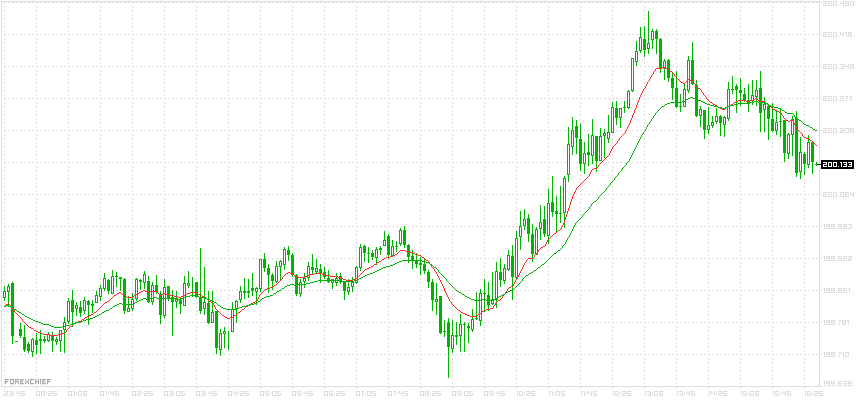Graphique du taux de change Forex GBP JPY
Quotes

Livre sterling britannique vs yen japonais
La paire GBP JPY est l’un des taux croisés les plus volatils par rapport au dollar américain, en raison de l’importante activité commerciale entre le Royaume-Uni et le Japon. L’influence du dollar sur la dynamique de cette paire est moyenne. Les deux économies, très développées, entretiennent un commerce mutuel actif, ce qui entraîne un volume élevé d’échanges sur le marché Forex concernant la paire GBP JPY. Les banques centrales du Japon et du Royaume-Uni déterminent les tendances à moyen terme. Traditionnellement, la livre sterling est considérée comme un actif coûteux, car la politique de la Banque d’Angleterre est stricte, tandis que la Banque du Japon lutte depuis de nombreuses années contre la déflation au moyen de politiques monétaires souples.
Le Japon maintient son taux d’intérêt proche de zéro et, tant que l’injection de yens dans le système financier pour soutenir les exportateurs se poursuit, la paire Forex GBP JPY conserve une tendance haussière à long terme.
Les facteurs fondamentaux suivants influencent les prévisions actuelles du taux de change livre sterling–yen japonais : les principaux indicateurs économiques du Royaume-Uni, de la zone euro, des États-Unis et du Japon (taux d’escompte, PIB, inflation, chômage, IPC, PMI, etc.) ; les déclarations des responsables et des institutions financières de ces pays ; les événements politiques au sein de la zone euro ; les décisions et déclarations de politique monétaire de la BCE et de la Banque d’Angleterre ; les annonces de la Banque du Japon et du ministère des Finances japonais ; les interventions sur le yen ; la demande de produits japonais sur le marché européen ; les prix de l’énergie et les indices boursiers asiatiques (Hang Seng, KOSPI, Nikkei 225, SET50) ; ainsi que les indices boursiers européens FTSE 100, DAX et CAC 40.
La paire GBP JPY réagit activement aux événements politiques et économiques ; les retournements spéculatifs à la suite de nouvelles sont caractéristiques. Par conséquent, cet actif se prête mal aux prévisions techniques et exige une gestion rigoureuse du capital. Il n’est pas recommandé aux traders débutants.
La forte liquidité de la paire livre sterling–yen japonais sur le marché Forex est activement soutenue par les teneurs de marché, en particulier pendant les sessions européennes et asiatiques. Le volume principal des transactions provient des opérations de change et spéculatives des banques centrales d’Angleterre et du Japon, ainsi que de grands contrats commerciaux et d’options à court terme.
























